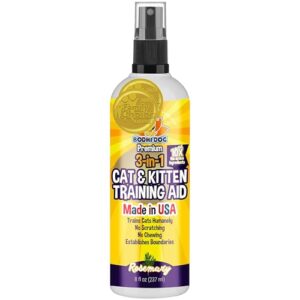Managing Excessive Nighttime Vocalization in Cats
Excessive nighttime vocalization in cats can be a frustrating issue for both cats and their owners. This article explores the causes, behavioral management strategies, and environmental modifications that can help address this problem.
Understanding the Causes
Excessive nighttime vocalization may stem from medical conditions, such as hyperthyroidism or pain. Behavioral reasons, such as attention-seeking, boredom, or anxiety, can also contribute. Environmental factors, such as changes in routine or lack of stimulation, may also trigger vocalizations.
Ruling Out Medical Causes
Before addressing behavioral or environmental factors, it is crucial to rule out any underlying medical problems. A veterinary consultation is essential to determine if medical conditions are causing the nighttime vocalizations.
Behavioral Management Strategies
Effective behavioral management strategies include:
- Ignore and Redirect: Ignore unwanted vocalizations and reward quiet behavior.
- Provide Enrichment: Offer toys, puzzle feeders, and interactive play to reduce boredom.
- Address Anxiety: Identify and mitigate sources of stress and anxiety.
- Establish Consistent Routines: Maintain regular feeding, play, and sleep schedules.
- Create a Calming Environment: Diffuse calming scents, play soothing music, and provide comfortable sleeping places.
Environmental Modifications
Environmental modifications can also help reduce nighttime vocalization:
- Nighttime Noise Blockers: Use white noise machines, earplugs, or curtains to block out potential triggers.
- Provide a Separate Sleeping Space: Allow the cat to sleep in a quiet and dark room.
- Consider a Nighttime Feeder: Automatically feed the cat a small meal before bedtime to prevent hunger-related vocalizations.
Medications and Supplements
In some cases, medications or supplements may be considered under veterinary supervision:
- Medications: Anti-anxiety drugs may be prescribed to reduce stress and anxiety.
- Supplements: Melatonin can help regulate sleep-wake cycles.
Patience and Consistency
Managing excessive nighttime vocalization requires patience and consistency. It may take time and effort to see results.
Conclusion
Excessive nighttime vocalization in cats can be effectively managed through a combination of behavioral strategies, environmental modifications, and medical interventions when necessary. Patience and consistency are key to addressing this issue and ensuring a peaceful night’s sleep for both cats and their owners.
-
Cat Calming Spray 2-Pack: Pheromone Spray for Stress and Anxiety Relief in Cats, Reducing Scratching, Peeing, and Marking Behaviors
$15.99 Behavior Modification Sprays and Deterrents -
Comfort Zone Cat Calming Spray: Value Size (4 oz) for Stress Relief and Anxiety
$22.98 Behavior Modification Sprays and Deterrents -
Eliminate strong urine odors with Nature’s Miracle’s 32oz enzyme cleaning spray for carpets, upholstery, and other surfaces
Original price was: $17.98.$15.98Current price is: $15.98. Behavior Modification Sprays and Deterrents -
Bodhi Dog 3-in-1 Cat & Kitten Training Aid for Indoor and Outdoor Use, Cat Deterrent and Repellent Spray for Furniture and Boundary Establishment (8 oz)
Original price was: $13.99.$11.99Current price is: $11.99. Behavior Modification Sprays and Deterrents
Relevant Questions
- What are the potential causes of excessive nighttime vocalization in cats?
- How can I rule out medical causes as the reason for my cat’s nighttime vocalizations?
- What behavioral management strategies can I use to reduce my cat’s nighttime vocalizations?
- Are there any environmental modifications I can make to help my cat’s nighttime vocalizations?
- In what situations might medications or supplements be considered for managing excessive nighttime vocalization in cats?
- What is the importance of patience and consistency in managing excessive nighttime vocalization in cats?




